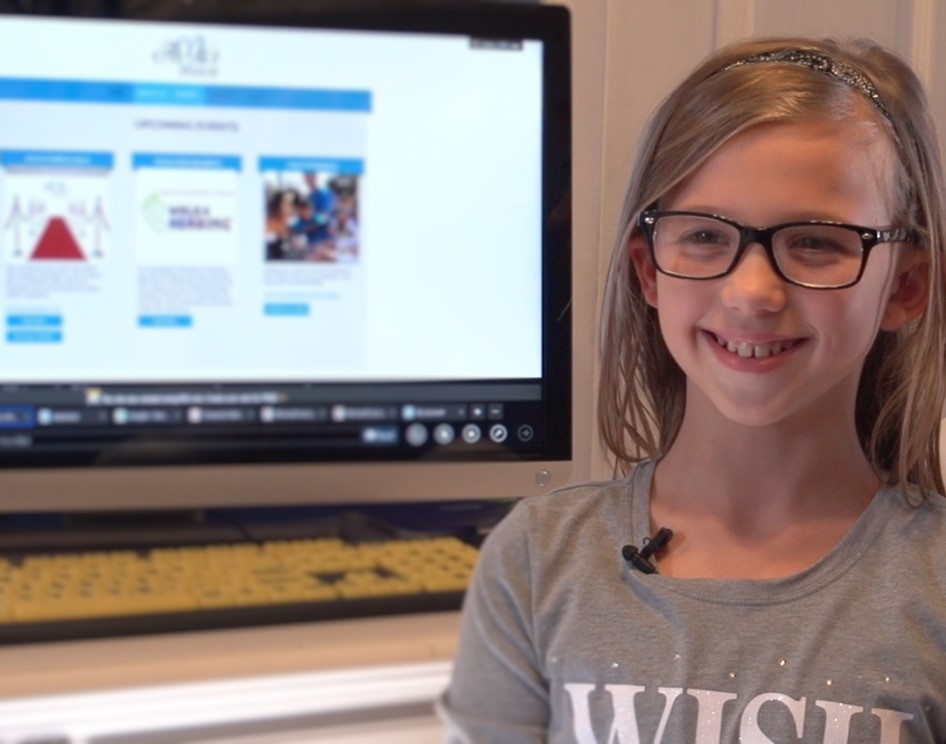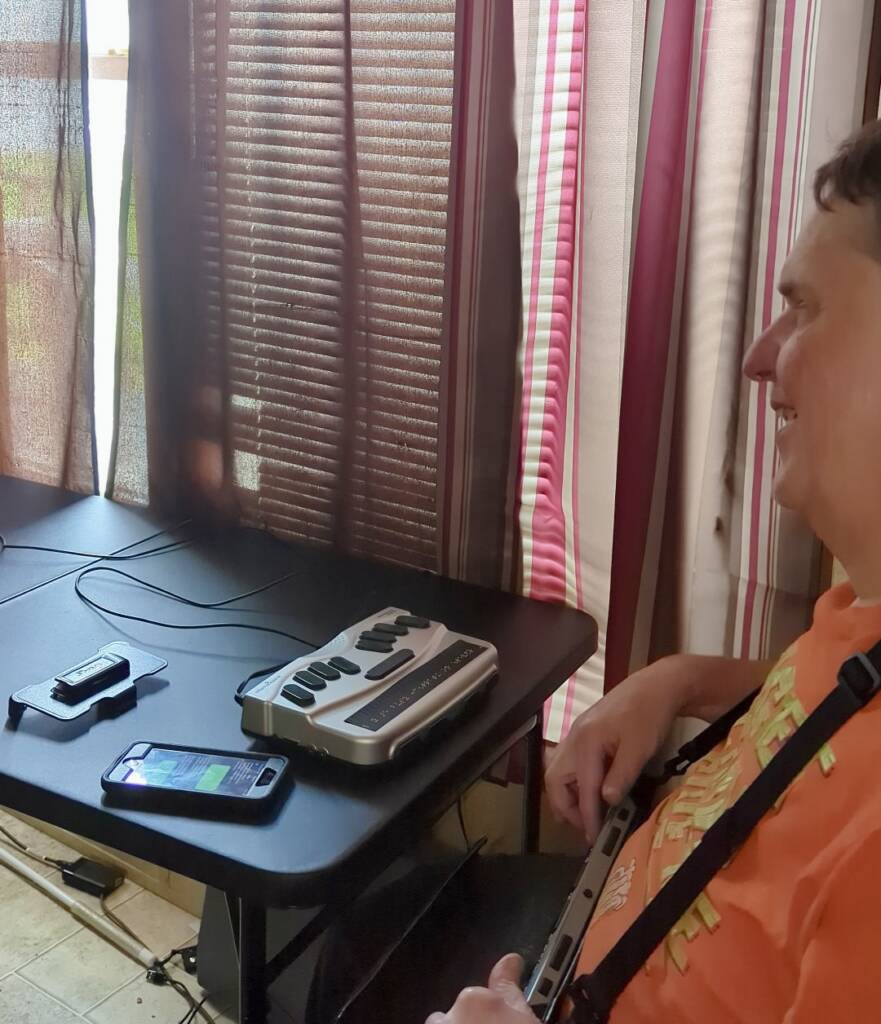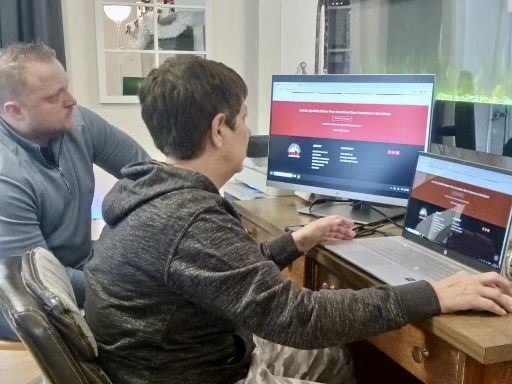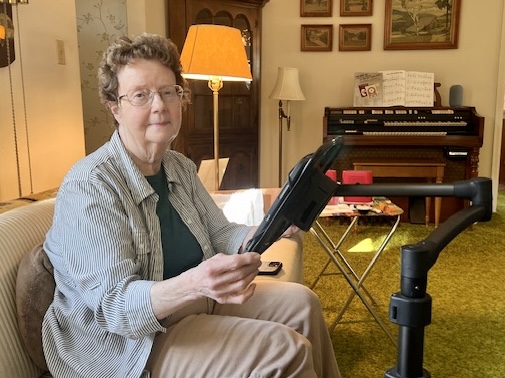Ava Bullis is like many girls her age. She plays basketball and rides horses. She loves to dance and draw. But unlike her classmates in Old Bridge, New Jersey, she’s doing it all with limited hearing and a progressive vision loss.
Born with Usher syndrome, the 10-year-old has profound deafness and will eventually experience tunnel vision and reduced visual fields. Assistive technology, provided by the National Deaf-Blind Equipment Distribution Program (known as iCanConnect), is playing a critical role in keeping her connected to her family and peers.
“It’s like filling your toolbox with a bunch of tools,” said her mom, Carly Fredericks, a family specialist for the New Jersey Consortium on Deaf-Blindness at The College of New Jersey.
“From a mom’s perspective, it’s very hard to watch your child struggle, and you can’t fix it,” she said. “This program really helps, because technology can be so expensive. To watch the fulfillment it gives her and the independence…it’s amazing.”
Through iCanConnect, Ava received an audio cable that plugs her iPad and phone directly into the cochlear implants she wears to boost her hearing. A signaler – a vibrating device connected to the family’s home phone – alerts her to the ringing phone. Ava also received a touchscreen desktop computer through iCanConnect.
She uses her computer to communicate with her teacher and classmates about school work, and for socializing with friends through Google Hangouts.
Ava is part of a co-parenting family, so she uses her computer to Skype with her dad when she’s with her mom, and to talk to her little brother Mason, 5, and sister, Miley, 3, when she’s with her dad. She has a large blended family so this enables her to communicate with everyone on a daily basis. She also likes going on her mom’s Facebook page to look at pictures of family members in Florida.
The iCanConnect equipment also allows Ava to stay in touch with peers – other children with vision and hearing loss – she’s met at conferences and meetings.
“It’s nice for her to meet other kids who have lost their vision or never had vision,” said Carly. “It’s hard to grow up in a hearing and sighted community when you feel different.”
One older friend serves as a mentor, helping Ava understand what it’s like to live without vision. “It’s important for her to talk with others in her situation, because none of her classmates are dealing with the same issues,” said Carly.
Thanks to the equipment she received from iCanConnect, Ava can communicate with friends and family, near and far – which helps her feel connected and part of her community.
“It’s a really good program,” said Ava. “It provides you with things you need. It makes me feel like everybody else.”



